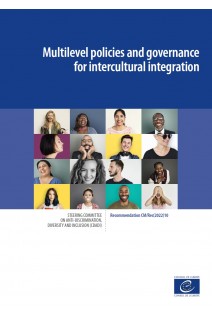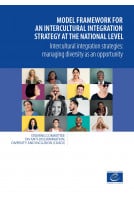It is the task of policy makers working on intercultural integration to realise the positive potential of diversity and make society and institutions in all fields and at all levels able to perceive and treat diversity as a resource. Intercultural integration is the outcome of a set of policies aiming
• to help society to benefit from the potential of diversity and manage its complexities,
to take into account social, economic, and demographic situations alongside the overall goals of cohesion, stability and prosperity, and
• to create the conditions to ensure equal access to opportunities for migrants to integrate to the legal, social, economic and cultural contexts in their country of residence.
The four principles of intercultural integration are to (1) promote and ensure equality and opportunities for all members of society; (2) foster a common pluralistic sense of belonging through valuing diversity and building social trust and community cohesion; (3) promote meaningful interaction between people across their different socio-cultural backgrounds; and (4) facilitate their equal participation in and contribution to society.





